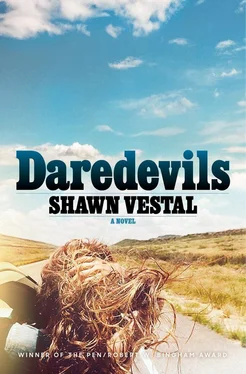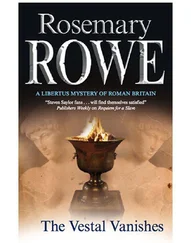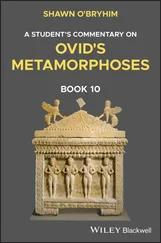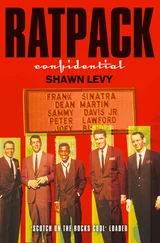Then he says, “I need to go . I need to get out of here. At least practice getting out of here.”
“Maybe I could go with you.”
Boyd laughs. “That would be hilarious. Boy Scout gone wrong. Break your parents’ hearts.”
“Screw off.”
“Plus,” Boyd says. “The thing about South Dakota. I think I might find my dad there.”
“What makes you think that?”
Boyd shrugs.
“Karma. Kismet. Whatever it is. Indian intuition.” He chews, watching his plate. “Day’s gonna come when we get back what’s ours. I find my dad, and we start working in tandem on this — whoa. You Europeans aren’t going to know what hit you.”
“Come on. You’re about as much an Indian as I am.”
Boyd stops. He stares at the table, bugs his eyes in frustration.
“You know, dumbass,” he says. “Everybody thinks the problem, the race thing, is the guy who hollers some shitty thing, calls you an Injun, burns a cross, whatever.”
“That guy’s not the problem?”
“That guy is a problem. But the problem is guys like you. The problem is guys who want to tell you there’s no problem. Guys who want to tell you to just calm down.”
“Calm down.”
Boyd is the only Indian Jason knows, and though there are a couple of Mexican kids in school, he really knows only white people, and he cannot imagine why Boyd doesn’t simply let all this go. Jason would say all people are created equal and that by writing a three-page paper on To Kill a Mockingbird, he has done his part.
“The problem,” Boyd says, “is dumbasses like you.”
And then he lets it drop. He turns his irritation to his mother, who he is convinced is not telling him the truth about his father.
All Boyd knows about his father is that he is an Indian. Years earlier, his mom told him his dad was Shoshone, but once he really started asking questions, she said maybe he had just been from Shoshone, the town and not the tribe. All she knew, he’d been living around Boise about seventeen years earlier, a real charmer, tall with white, white teeth and scarred-up hands. “She says last she heard he was working ranches and rodeos in Montana and Wyoming, but that was ten years ago. He could be anywhere, she says. Even dead — she wouldn’t be surprised.”
“You probably ought to just let it go.”
“Easy for you to say. You’ve got a father.”
“You can have him. He’s all yours.”
“Easy for you to say.”
In the car again, on the way back to church, Jason says, “I was sure sorry to hear about your parents.”
Loretta is confused: heard what about them? She thinks it through — what the story is, who’s been told what.
“Hear what about them?” she asks.
“I thought I heard your folks had some… health problems. Or passed away?”
“You did?”
“Maybe I’m remembering wrong.”
“They’re still hanging around. I think.”
“Oh. Good.”
She looks over at him. Roseate patches bloom on his cheeks and ears, complementing that auburn scruff of hair. His nerves tremble through the whole car. She imagines they are two ordinary teenagers. Shy and nervous and young. Children. He turns to her, and flushes even more deeply to find her looking at him. To be liked in this way, to be buzzed by such naïve, clean interest, feels pure. She thinks he will be a handsome man, this boy, when he loses his flush and downy cheeks, when he hardens a bit, but she cannot imagine him ever being less than simple and readable, and this morning that feels like the best quality a person could have.
“What?” he asks.
“Nothing,” she says.
He pauses. “I guess I somehow got the idea that your folks had died, and that was why you live with Dean and Ruth.”
Instantly, it’s back — the irritation, the self-consciousness. She tells him the story, the lie, tersely, bites it off. Her father’s business had failed in Cedar City, and her mother’s Crohn’s disease left her in bed most days, and there was just no money in the house.
“Mom and Dad just needed a little relief,” she says. “That’s all that was.”
“Weird,” he says.
“What’s weird about it?”
“Nothing. I mean — nothing.”
He drives, clearly struggling to come up with something to say. Telling the lie about her parents reminded her of the truth about her parents — that they gave her to Dean. Gave her to Dean, and when she stopped speaking to them, in church on Sundays or in passing around Short Creek — they stopped, too. Like they didn’t care about her any more than she cared about them. Which made her care.
Jason finally says, “Ready for another thrilling morning of Brother Kershaw’s moral tales and lessons?”
“I don’t know.”
And then he sort of gulps, or gathers himself, and blurts, “Are you pissed off at Dean for making you go?”
Out the window, she watches the landscape blurring past: lava rock, sagebrush, fence posts, haystacks, fallow, harvested fields. Fat drops of rain strike the windshield like pellets. The question feels more important than it is. The rain begins splattering loudly, a gust rustles the trees clustering a farmhouse, and she says, “Yeah.”
What will he say to that?
“Yeah, I hate it, too. I actually told my parents I wasn’t going to go anymore. Until they dragged you into it.”
She teases him, as Bradshaw might: “What an outlaw.”
That night Dean stands at the back of the yard and looks into the fields while Loretta plays tag with the children, sprinting around the lilac bush that sits beside the laundry line.
“Little sister!” Dean barks urgently. “Run into the office and get my pistol from the bottom drawer of the desk. It’s behind the lockbox.”
A crowd of jackrabbits is dancing in the fields — leaping, turning, flying, it seems like dozens of them, dark smears on the darkening land. Loretta doesn’t move at first; Dean has never asked her to go into his desk, into any of his things. He has always been so secretive about them.
“Hurry, Loretta!”
She runs inside, past Ruth at the sink, and into the small room at the top of the basement stairs where Dean has jammed his desk. She opens the bottom drawer, and there, behind a sheaf of papers in folders, is a canvas bag, top bunched downward, and a metal box, and behind them, at the back of the drawer, is Dean’s revolver.
Loretta reaches into the drawer, grabs the bag, and lifts it. Just an inch or so. It is heavy. Heavier than it looks. Heavy enough to be just one thing. She looks in and sees coins — maybe thirty or forty of the fifty-dollar golden eagles — but not the nuggets. Not the Sutter Creek gold. Hadn’t he told her he was leaving it in Short Creek?
“Loretta!”
Her blood tingles, her mind circles. She carries the pistol and the worn, heavy box of bullets out to Dean. He stands there shooting until dark, reloading four times, while Loretta pretends to watch from behind him, trying all the while to shut down the racing of her body, and she doesn’t realize that Dean is missing every shot, that he doesn’t hit a single creature, until he lets out a strangled bark of frustration and hurls the gun into the blackening desert.
Over breakfast, Jason’s mother questions him about Loretta. What has she said about living with Dean? Has she mentioned whether they’re planning to stay? Or what they’re up to over there? Will they be going back to Short Creek anytime soon?
The interrogation follows four days of silence from his parents about Dean and Grandpa’s place. The one time Jason tried to ask about it, his father brusquely replied, “I don’t know what they’re up to over there, son,” and when Jason had started to say something more, his dad interrupted angrily, “What did I just say, Jason?”
Читать дальше












